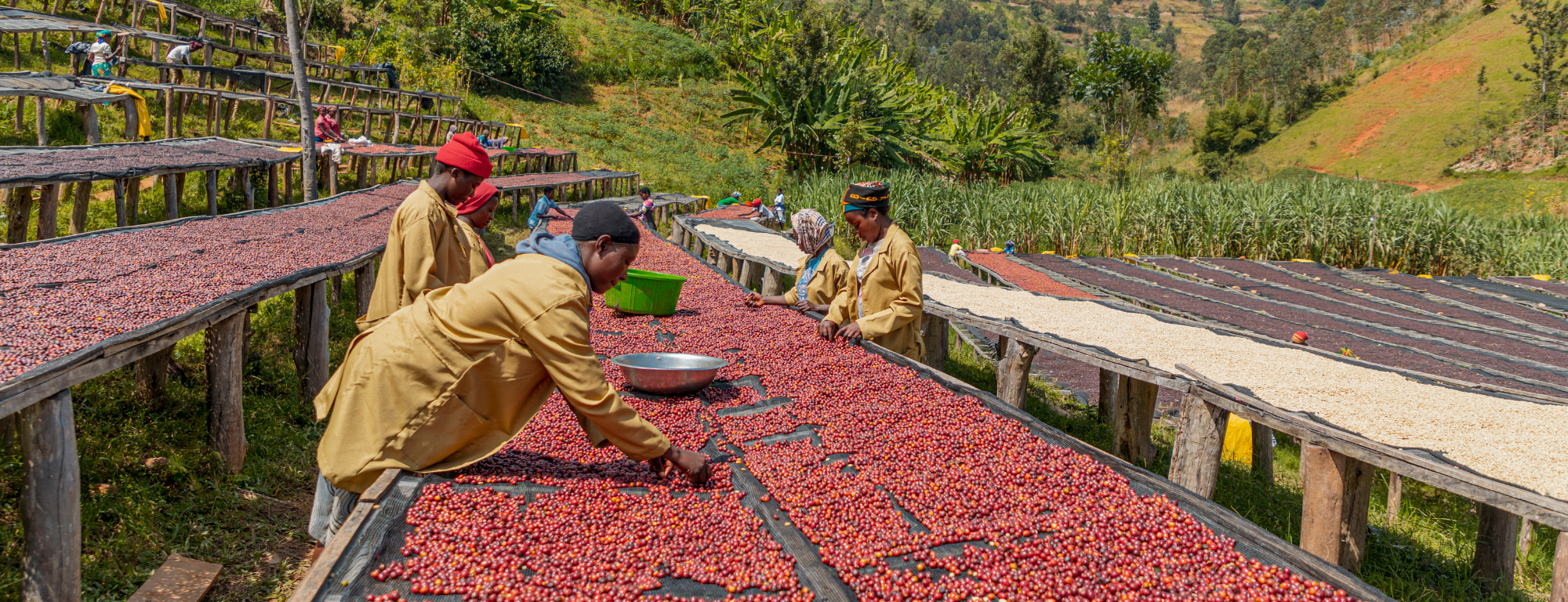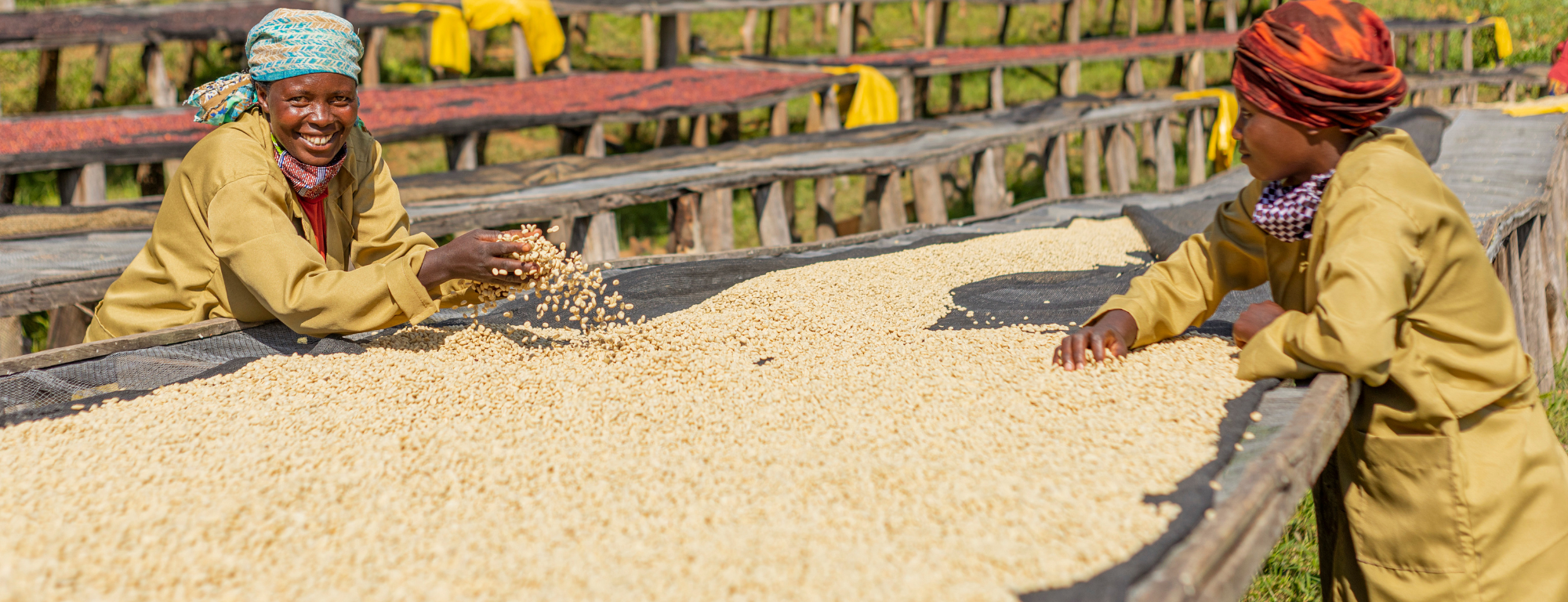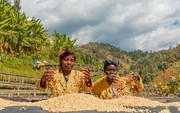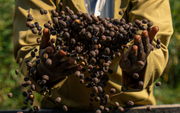Coffee Processing Methods In Rwanda: Washed Vs Natural



Washed Vs Natural
How are washed coffee beans different from natural (dry) processed coffee beans? They both come from the same plant but are processed differently. Both washed and dry-processed coffees are popular in Rwanda, with the natural process increasingly gaining popularity. The dry-processed variety has more fruit and fermented flavors because the bean has more time to interact with the natural sugars from the cherry. Coffees that have not been subjected to further processing are referred to as natural (dry-processed). Selected beans are dried in the entirety of the cherry before being pulped. Wet-processed, or washed, coffees are dried without the cherry. Washed coffees are usually fermented to loosen any remaining pectin that adhered to the bean, then washed clean before drying.

Washed Coffee
In the washed process, the fruit flesh is removed from the coffee beans before drying. This is done through fermentation and soaking in water. Washed coffees are known for their transparency, clean aromas, and distinct flavors. A de-pulper machine is used to remove the fruit flesh, followed by fermentation in a water tank. The duration of fermentation varies with weather and altitude, typically taking 24-72 hours. After fermentation, the beans are washed and hand-sorted before drying. The drying process can be natural or machine-assisted. Washed coffees have a brighter, more acidic flavor profile, popular among roasters, baristas, and milk chocolate enthusiasts. This method reduces the risk of flaws but requires more water and is costlier for farmers and producers compared to other processing techniques.

Natural Coffee (Dry Process)
Natural processing, or dry processing, is a traditional and labor-intensive method of coffee processing. Cherries are dried in the sun without treatment, and the beans are separated by density. This process can vary at drying stations, using methods like brick patios or raised beds for uniform drying. After drying, the skin and fruit flesh are removed mechanically. Natural coffees have a fruity and chocolaty flavor due to prolonged contact with the cherry's natural sugars. However, improper drying can result in unpleasant flavors. This method is commonly used in regions with limited water access. Natural coffees are sought after by some enthusiasts for their unique flavor profiles, including berry, tropical fruit, and honey notes, but they may not appeal to those who dislike fermented or unconventional tastes.
